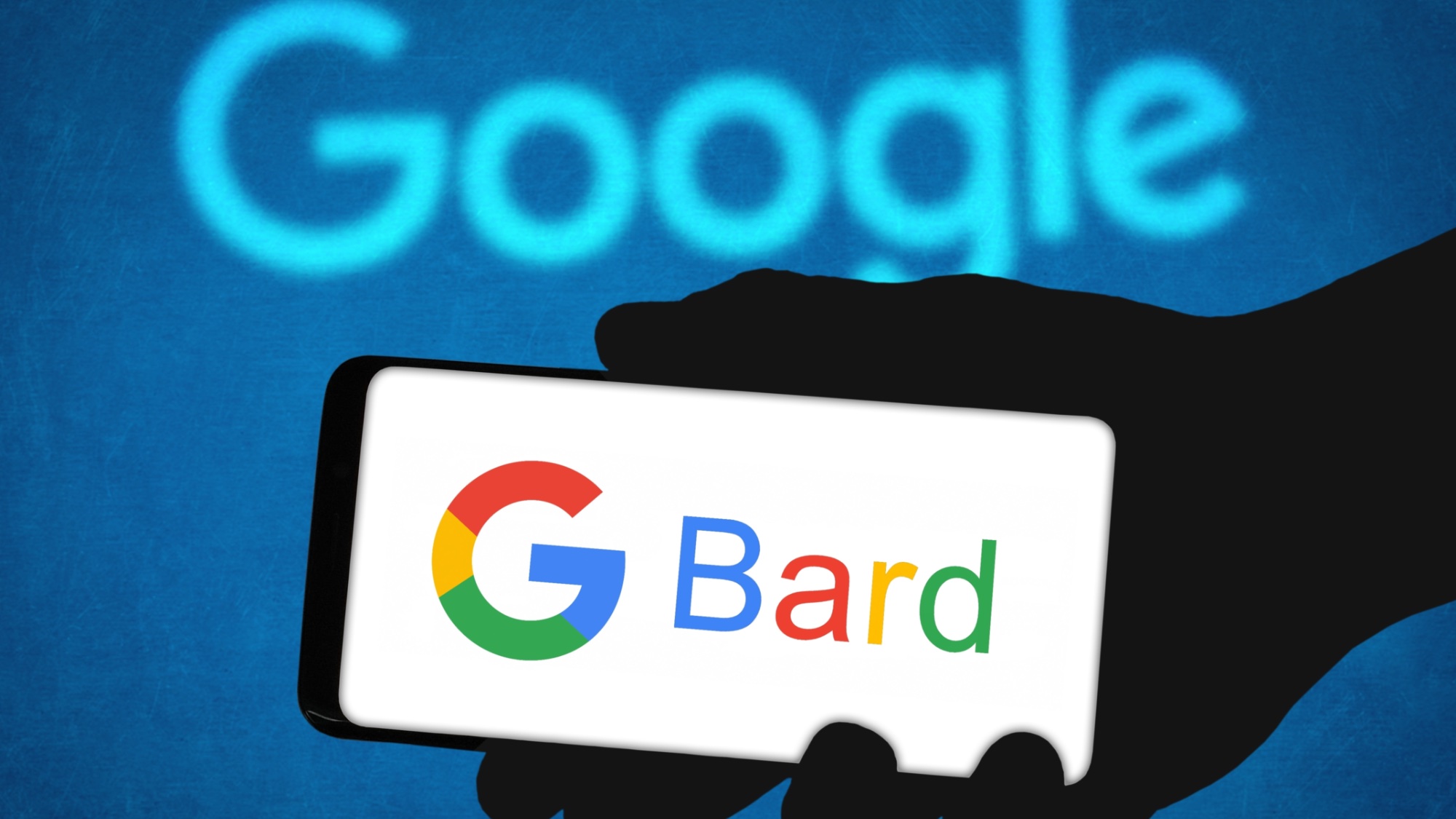Google Bard AI mistake just cost Google over $100 billion
AI-powered chatbot makes costly error in early demo

It could already be back to the drawing board for Google's high-profile launch of its AI-powered Bard tool coming to Google search.
A highly publicized wrong answer has spooked investors. CNBC reported the company's stock fell 7%. And as of February 9 it's down another 2.7%. That's over $100 billion lost.
Google showed off Bard during a live event yesterday (February 8), outlining how the new AI-powered chatbot will augment search capabilities. Using Bard, you'll be able to ask questions in a conversational way, whether it's having the chatbot outline the pros can cons of electric cars or suggesting stops during a road trip.
But there's just one potential problem to having a chatbot assist you with your search queries: What if the chatbot doesn't know what it's talking about?
Alas, that's a problem Google's going to have to address after promotional material showing Bard in action featured the chatbot sharing incorrect information. Spotted by Reuters, a GIF shows Bard supplying several answers to a query about the James Webb Space Telescope, including an assertion that the telescope took the first pictures of a planet outside the Earth's solar system. That must be a shock European Southern Observatory’s Very Large Telescope, which actually pulled off the feat first.
Bard is an experimental conversational AI service, powered by LaMDA. Built using our large language models and drawing on information from the web, it’s a launchpad for curiosity and can help simplify complex topics → https://t.co/fSp531xKy3 pic.twitter.com/JecHXVmt8lFebruary 6, 2023
All right, so that's probably something you didn't know off the top of your head. But it would be nice if the AI-powered chatbot sharing that fact with you did.
"This highlights the importance of a rigorous testing process, something that we’re kicking off this week with our Trusted Tester program. We’ll combine external feedback with our own internal testing to make sure Bard’s responses meet a high bar for quality, safety and groundedness in real-world information."
Google spokesperson
To be fair, glitches happen in launch demos all the time, though this particular mishap won't exactly build confidence in Bard's reliability — especially at a time when OpenAI's ChatGPT seems to be well ahead of Google's efforts to put artificial intelligence to use in responding to queries and requests. Just yesterday (February 7), Microsoft announced plans to integrate ChatGPT into its Bing search engine, and our initial hands-on with the ChatGPT-powered Bing showed some promising results.
Sign up to get the BEST of Tom's Guide direct to your inbox.
Get instant access to breaking news, the hottest reviews, great deals and helpful tips.
It's still early days for Bard, which was announced by Google's Sundar Pichai just a few days ago. Powered by powered by Google's Language Model for Dialogue Applications (LaMDA), Bard is currently in the hands of what the company calls "trusted testers" who are woking to fine tune the chatbot before it's folded into Google search.
"This highlights the importance of a rigorous testing process, something that we’re kicking off this week with our Trusted Tester program," a Google spokesperson told Reuters when contacted about Bard's mistake. "We’ll combine external feedback with our own internal testing to make sure Bard’s responses meet a high bar for quality, safety and groundedness in real-world information."
Investors seem not to be in a particularly understanding mood. After word of Bard's mistake got out, shares in Google parent company Alphabet dropped more than 7%. That could also reflect overall skepticism about Google's announcements and whether it's playing catch-up with Microsoft and ChatGPT.
Bard wasn't the only AI-powered tool that Google focused on during its Wednesday live event. Google Lens is rolling out a multisearch feature that lets you search a picture and text at the same time. Also coming to Google Lens — at least on Android devices — is the ability to search the photos and videos you come across in website and apps without having to exit that website or app.
Google Maps will add an immersive view feature that uses AR technology for flyover style views of popular tourist spots, with London, New York and Los Angeles offering the feature. Meanwhile, Google Translate is going to provide more contextual translation options with descriptions to help decipher things like local idioms.
It all sounds very promising — once Google ensures that all these features are ready for prime time, of course.
More on the AI wars
Philip Michaels is a Managing Editor at Tom's Guide. He's been covering personal technology since 1999 and was in the building when Steve Jobs showed off the iPhone for the first time. He's been evaluating smartphones since that first iPhone debuted in 2007, and he's been following phone carriers and smartphone plans since 2015. He has strong opinions about Apple, the Oakland Athletics, old movies and proper butchery techniques. Follow him at @PhilipMichaels.

